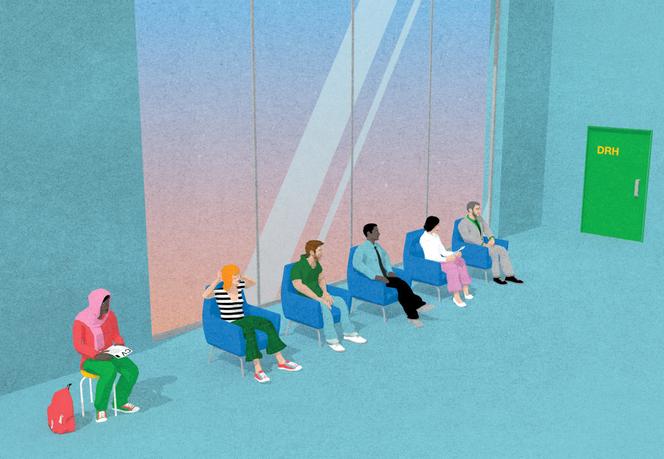


Lina (her name was changed) noticed a clear difference. When this auditing and management control student started looking for work in France in June 2022, shortly before the end of her Master's degree, the offers came to her almost as if by magic. All she had to do was write "#opentowork" on her LinkedIn profile. Recruiters were attracted by her background – an MBA from ESG Finance and several two-year work placements. After a series of interviews, Lina even had her pick between three attractive job offers. She accepted a permanent contract with insurance company Generali but was soon disappointed by the content of the job and resigned a few months later, convinced that she would quickly find another position.
Unfortunately, her search did not go according to plan. She sent out dozens of applications over six months, all of which either went unanswered or did not get her past the first phone interview. Her resume was still as promising as ever, but one thing had changed: Lina, a Muslim Frenchwoman, had decided to wear a hijab. "I knew it would be complicated – in France, people are always reluctant to wear the veil – but not to this extent," confessed the young woman. "It came as a blow to my morale: I was used to the energy of a corporation, to teamwork, and all of a sudden, my profile no longer interested people." Lina ended up being recruited by the organizing committee for the 2024 Olympics, a highly international working environment, and the only employer to have called her for an interview. "I had set myself a deadline: If nothing had come up by September, I would have agreed to take off my hijab to go to work," she noted.
The young graduate isn't sure what led recruiters to become silent and has no actual proof. Between companies who said they "don't have a problem with the veil, but actually do" and those who didn't respond at all, hijab-wearing candidates like Lina navigate between what remains unsaid. From a legal standpoint, no candidate can be excluded from a recruitment process because of religious affiliation or criteria other than competence. Unlike the public sector, which follows the principle of secularism, the private sector does not prohibit wearing religious symbols. The only exception was introduced by the 2016 labor law: A company can, through its internal regulations, impose neutrality on its employees in very specific cases related to the tasks involved.
In reality, however, studies carried out on this issue show that wearing a hijab or other form of head covering for religious purposes is indeed a factor of discrimination, particularly when entering the job market. According to the survey 'Trajectories and Origins Origines 2' (2019-2020) conducted by INSEE (France's statistics institute) and INED (France's demographic institute), 26% of hijab-wearing Muslim women in couples with children (aged 18 to 60) are in the workforce, i.e., employed or unemployed, compared with 48% of non-hijab women. "While it's difficult to sort out what is due to a traditional conception of roles within the family or to the accumulation of experiences of discrimination, we do know that some of these women no longer even try to enter the job market because they are discouraged by the obstacles they face," noted the sociodemographer Patrick Simon, who contributed to the survey. "Self-reported experience of discrimination confirmed how overexposed they are: 61% of veiled Muslim women with higher education degrees said they were discriminated against, compared with 42% of those who don't wear veils."
You have 67.64% of this article left to read. The rest is for subscribers only.
